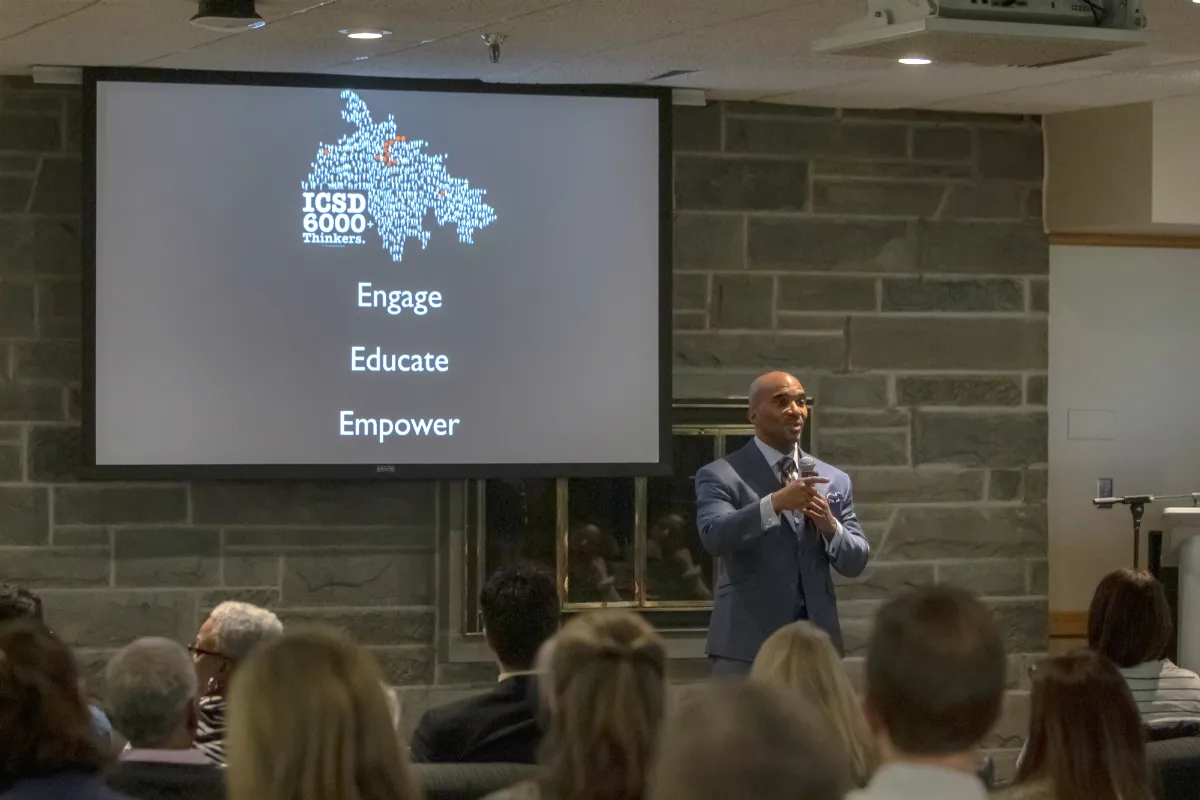To inform the Imagining Ithaca strategic planning process, Ithaca City School District Superintendent Luvelle Brown, a member of the Ithaca College Board of Trustees and of the strategic planning steering committee, gave a presentation on Tuesday, Dec. 4, sharing his insights on the current state of K-12 education and its implications for the college.
“I am deeply passionate about the K-12 connection to higher [education], and that pathway needs to be seamless,” President Shirley M. Collado said while introducing Brown. “We should all — nationally and globally — be thinking about that connection and… activating ways for us to do deep work together that are really transformative.”
Brown’s presentation centered on the work that he and others have done in the Ithaca City School District. Referencing the district’s vision and mission statements, Brown said they seek to engage, educate and empower students in order to help them develop into thinkers.
In Ithaca’s elementary schools, Brown said that children learn by taking on projects that address real-world problems relevant to their communities. At Caroline Elementary School, for example, students try to figure out why a nearby wilderness trail is prone to flooding. “They are solving that issue,” Brown said. “That is what they do all day, and they are doing it well.”
